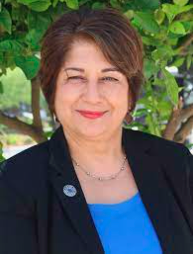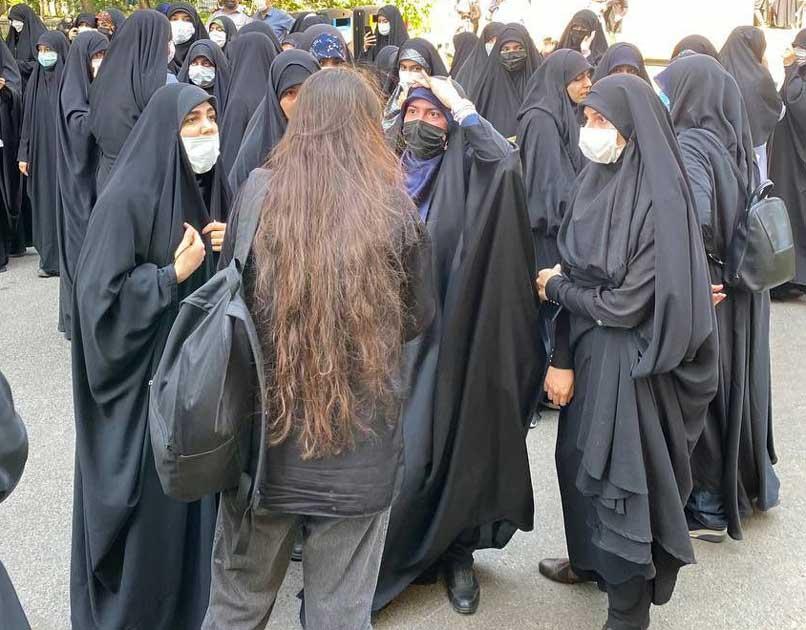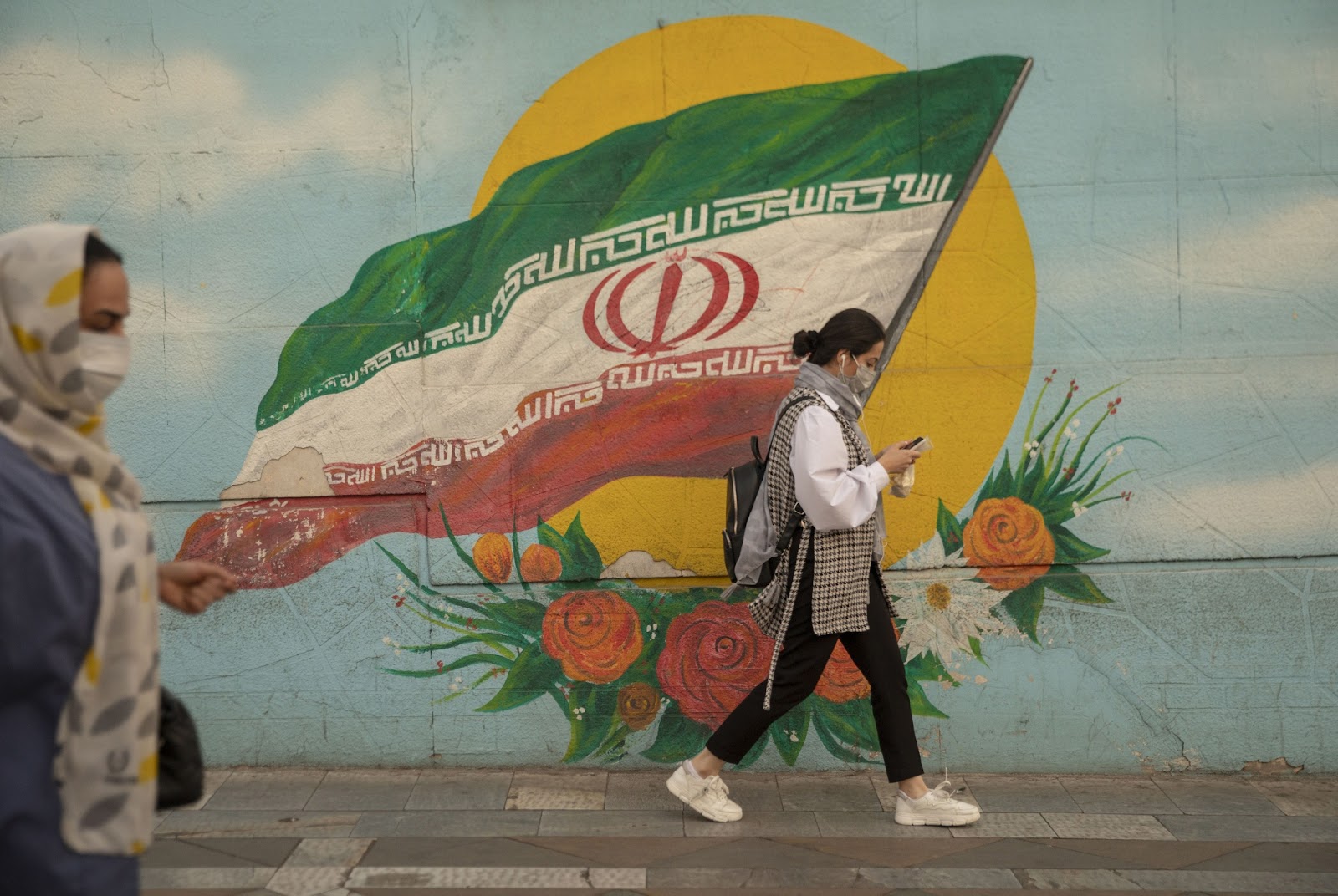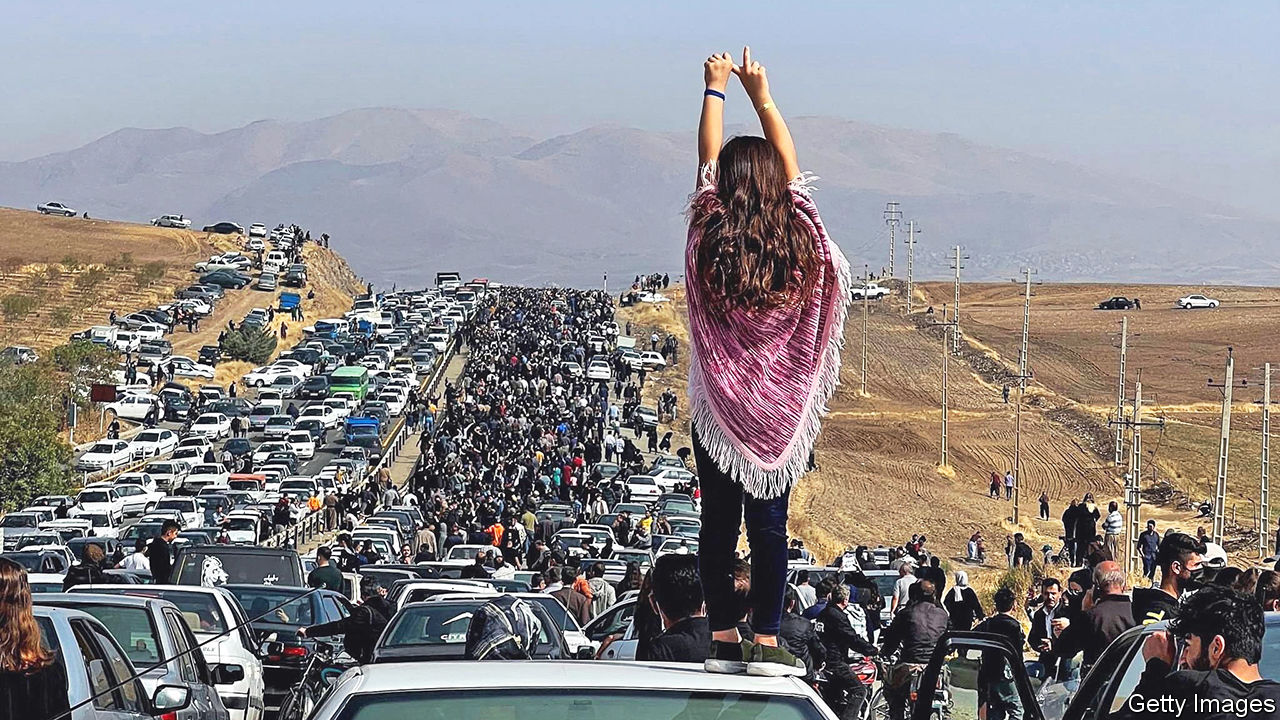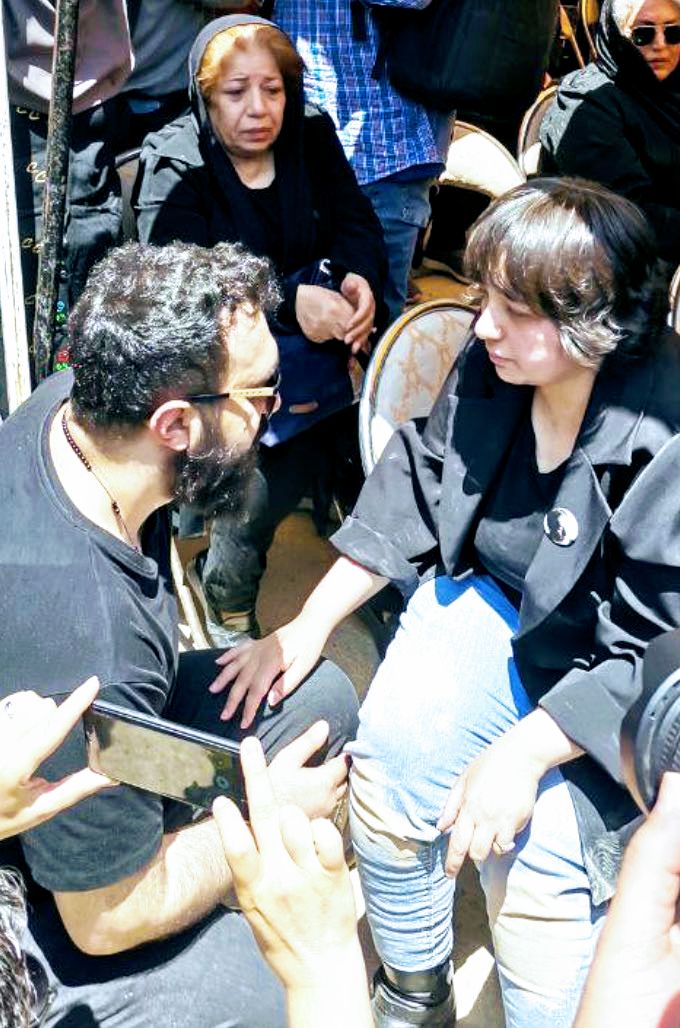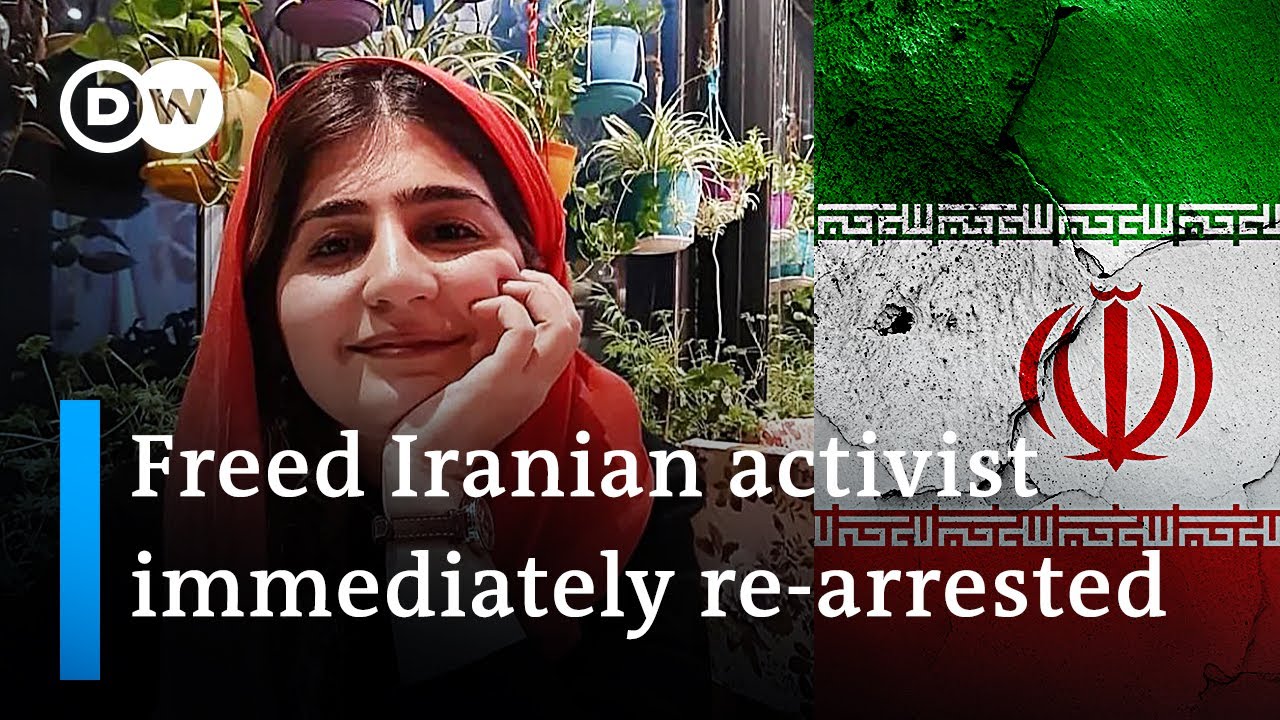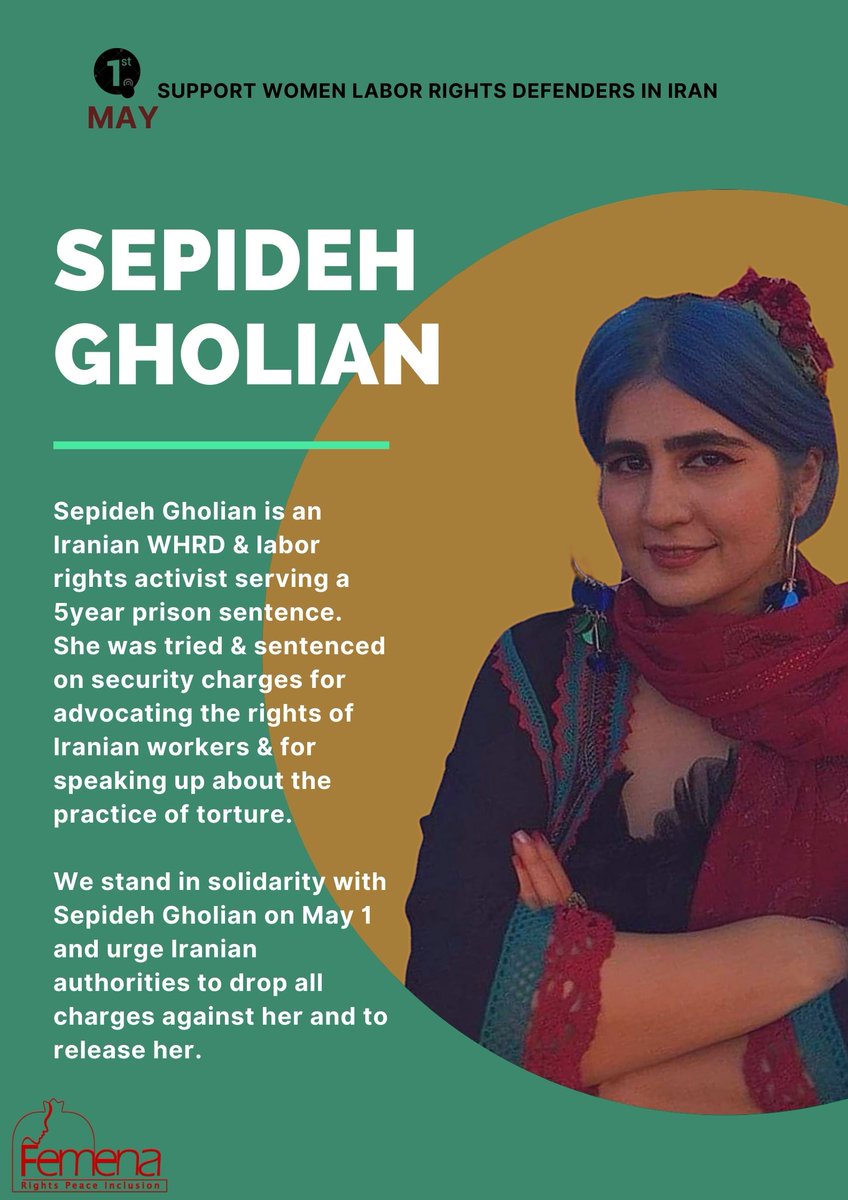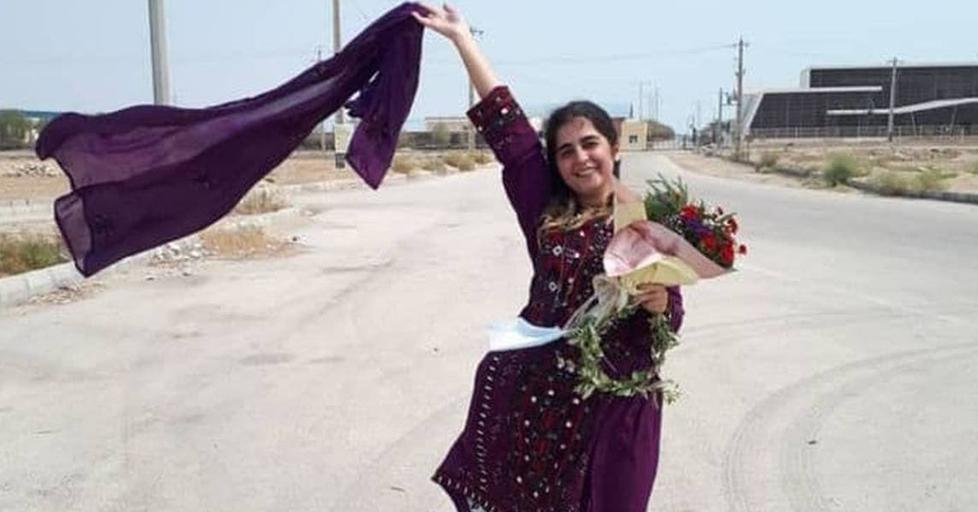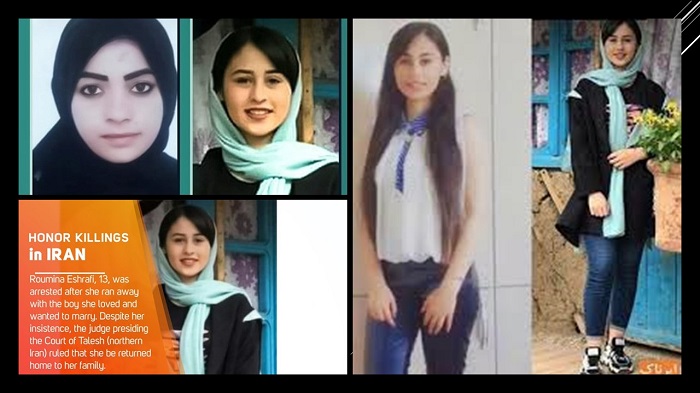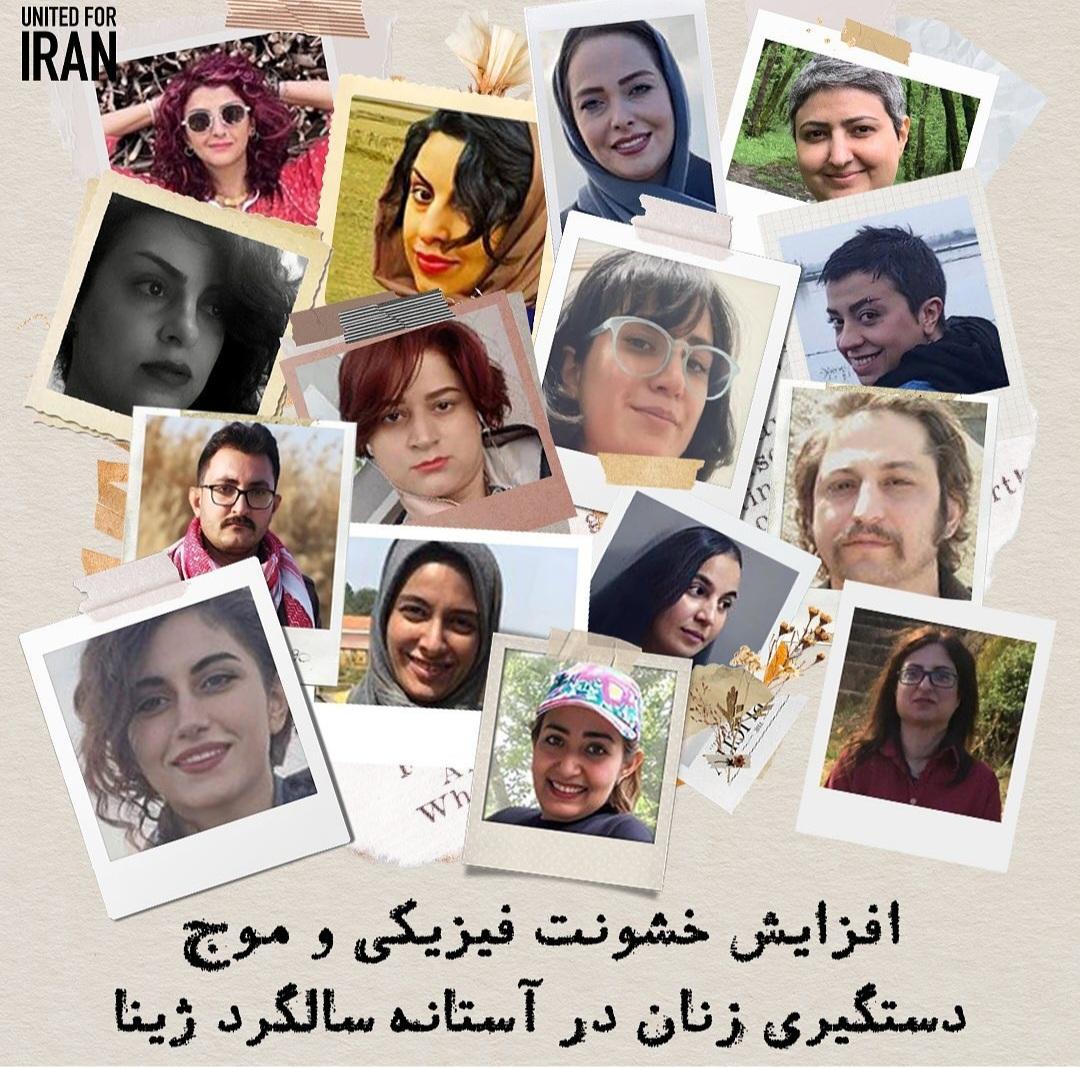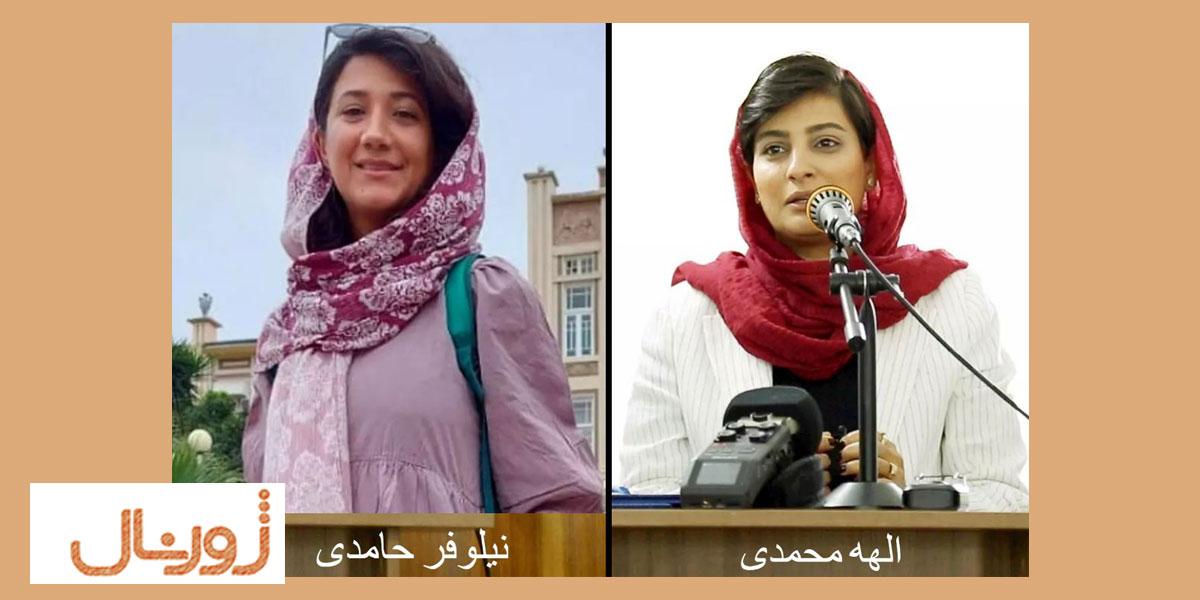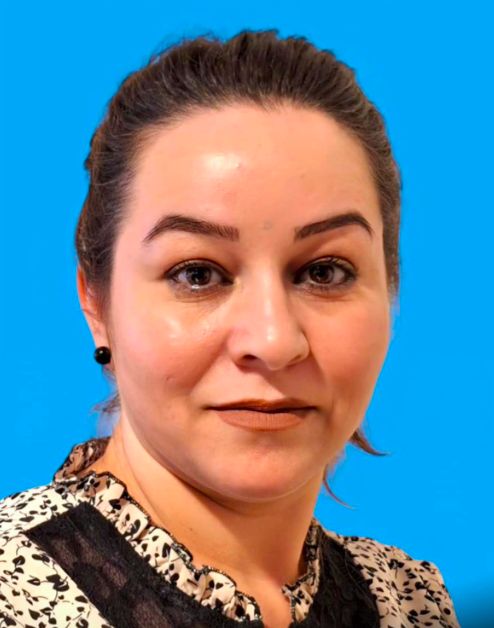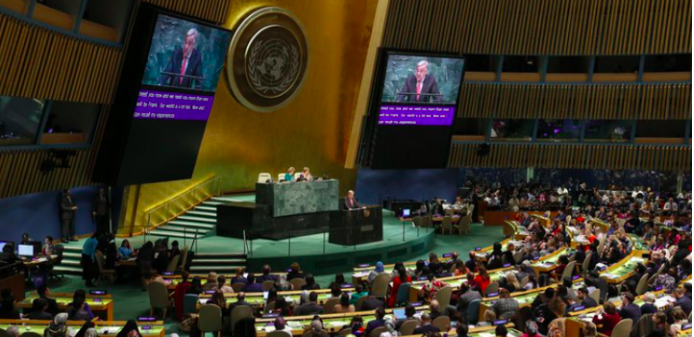Commission on the Status of Women
Sixty-seventh session
6-17 March 2023
Follow-up to the Fourth World Conference on Women and
to the twenty-third special session of the General Assembly
entitled “Women 2000: gender equality, development and
peace for the twenty-first century”
Statement submitted by Women’s Intercultural Network, a non-governmental organization in consultative status with the Economic and Social Council*
The Secretary-General has received the following statement, which is being circulated in accordance with paragraphs 36 and 37 of Economic and Social Council resolution 1996/31.
Since the Fourth World Conference’s adoption of the Beijing Declaration and Platform for Action (BPfA) in 1995, Women’s Intercultural Network, a United States based organization, has been at the forefront working locally and globally to achieve gender equality and empowerment of women and girls. In 1995, recognizing technology as vital to communication, Women’s Intercultural Network collaborated with Apple Computer to set up a Local Area Network in Beijing to connect with and provide real-time updates to members and civil society partners in the US on the workings of the Conference. Committed to advancing the Beijing Platform for Action, Women’s Intercultural Network built the first state policy mechanism to implement the BPfA, known globally as the California Women’s Agenda, then leveraged the power of technology to connect groups of women from the USA, Uganda, Iran, Afghanistan, Japan and around the world with the US policy mechanism for the BPfA. Women’s Intercultural Network’s decades of engagement at the annual Commission on the Status of Women has included panels on technology and education along with technology in the context of peace and security. Given our history, global network and stalwart commitment to advancing women’s human rights globally and locally, Women’s Intercultural Network supports the Action Coalition on Technology and Innovation for Gender Equality in urging a global multi-sector mobilization to shape a feminist digital future. Achieving gender equality and the empowerment of all women and girls in the context of the digital revolution requires addressing socio-cultural, data-driven and regulatory challenges faced by both public and private sector actors. The Office of the Secretary-General’s Envoy on Technology responsible for coordinating the implementation of the Secretary-General’s Roadmap on Digital Cooperation will advance work towards the Global Digital Compact proposed in the Common Agenda, in close consultation with Member States, the technology industry, private companies, civil society, and other stakeholders. The role of civil society and the leadership and representation of women and girls is paramount.
As the Secretary-General’s Roadmap on Digital Cooperation seeks to advance work towards the Global Digital Compact proposed in the Common Agenda, efforts by Member States, the technology industry, private companies, civil society, and other stakeholders must consider and be informed by the diverse needs and insights of women and girls to ensure a robust and inclusive digital transformation that benefits society and marginalized individuals.
Digital transformation holds tremendous potential, but also great peril for women and girls. Women and girls in all their diversities must have equal access to opportunities to use, lead, and design technology and innovation. Progress in this area requires the world to address the significant digital divide and entrenched gender norms that continue to limit the aspirations of young women and girls. Achieving gender equality and the empowerment of all women and girls in the context of the digital revolution necessitates investments in digital infrastructure alongside policies and programs that support women in Science, Technology, Engineering and Mathematics. Addressing gaps requires funding, urgent multilateral and multi-stakeholder commitments and accountability.
Data collection must be deliberate, funded and disaggregated. Women’s Intercultural Network encourages states, non-governmental and the public and private sectors to fund and apply the gender-focused evaluation, practices, and metrics outlined in CEDAW to bring this global framework to local communities to advance women and girls’ equity and accelerate progress across all SDG’s by mainstreaming gender.
To this end, WIN connects CEDAW to local action. Since 2014, the Cities for CEDAW Campaign has identified vital links between human rights, gender equity, and local public policy. Resolutions and Ordinances have taken shape in localities across the United States committed to the well-being and empowerment of women and girls and their families. To date Women’s Intercultural Network and its partners have guided 15 cities committed to tracking and measuring disaggregate data by enacting ordinances that incorporate anti-discrimination human rights standards and strategies into local governance, modeled by the UN CEDAW Treaty.
These ordinances, along with the 40 City/County Resolutions have established commitments to CEDAW concepts and practices. An additional 35 U.S. cities and 10 counties are exploring this initiative, demonstrating the growing consensus that CEDAW is a roadmap to gender equity, inclusion, and sustainability at the grassroots. The Cities for CEDAW Campaign mandates a Gender Analysis. These analyses provide localized disaggregated data on employment, social services, access and participation. The resulting data informs strategic plans and policy decisions. Adopting a local CEDAW framework provides oversight and creates the measurement mechanisms essential to track progress. These gender-based equity initiatives across the country will enhance critical data needs and analyses, addressing crucial digital divides that limit access and opportunity for women and girls. Inability to participate in civil society due to lack of connectivity or vocational and technical skills is a form of discrimination outlined by CEDAW. The gendered nature of cyber crimes is yet another.
Diverse cities have committed to improve the status of women and girls in paid and unpaid labor, childcare, access to education, social and financial services with attention to intersectional outreach to overcome racial inequality, LGBTQ+ discrimination, and bias experienced in rural, refugee and indigenous communities. Progress relies on disaggregated data, but also necessitates funding, education and training alongside innovation. CEDAW cities and counties are addressing the digital divides that plague both urban cores and rural areas, increasing educational and employment opportunities for marginalized women and girls.
The digital revolution is a transformational moment in history that holds the opportunity to advance equity and human rights globally or perilously undercut both.
Women’s Intercultural Network proposes the following recommendations:
1. Member states must deliver commitments to finance and advance gender equality and accelerate progress by implementing strategies and digital policies informed by stronger engagement with the private sector, civil society, with increased focus on women’s leadership.
2. Digital advances must be inclusive, intersectional, support women’s human rights and strong societies. Member states and the private and public sectors must commit to responsible use of data, upholding the rights and privacy and safety of individuals. Technology, innovation, policies and services must be informed by and reach the most marginalized including rural, poor, indigenous, refugee, BIPOC, LGBTQ+, disabled. Gender biases in Artificial Intelligence algorithms replicate patterns of discrimination; therefore, deliberate design must advance gender equality and non-discrimination in technology and development. AI technologies used for surveillance, such as facial recognition, also raise safety issues. For example, these technologies could be used to curb the right to peaceful assembly and freedom of expression and used against those who partake in peaceful protests, including human rights defenders.
3. Strategies must center a Human Rights framework to ensure policies, programs, and initiatives are equitable for women and girls, and all marginalized groups. Member states and stakeholders must prioritize innovative and sustainable technologies, projects and programs that advance gender equity through social, economic and environmental solutions.
4. Education must focus on access, infrastructure, and closing the digital divide. Curriculum delivery must advance to leverage online learning. Investing in building a culture of digital literacy for marginalized communities requires collaborating with civil society organizations and school districts to ensure success.
In the United States, the digital divide is an old problem in the new normal. As things stand in 2022, “24 million Americans lack access to high-speed internet, and many more cannot connect due to gaps in digital equity and literacy and/or because the service is priced beyond their reach. To connect every household, Congress has tasked states with federal broadband funding and oversight from the U.S. Department of Commerce’s National Telecommunications and Information Administration (NTIA).
A 2020 study by Common Sense Media, “Education SuperHighway” found that 30 percent of US K-12 grade public school students live in households without either an internet connection, a device adequate for remote learning, or both. Sixty percent of these disconnected students can’t afford digital access; up to 40 percent face adoption barriers (e.g., a deficit of digital literacy skills or an inability to complete the signup process for low-cost broadband service); and 25 percent lack access to reliable digital infrastructure (an issue primarily impacting students in rural regions, in particular, Native American students).
Intersectionality, race exacerbates the digital divide. Black and Hispanic households account for nearly half of all Americans without internet access at home. It’s not surprising that 70 percent of Blacks and 60 percent of Hispanics are insufficiently equipped with digital skills to compete in the current job market. According to Deutsche Bank report, “America’s Racial Gap and Big Tech’s Closing Window,” 76 percent of Blacks and 62 percent of Hispanics could get shut out of or be underprepared for U.S. jobs by 2045.
The situation is similarly dire across the country’s 574 tribal nations. The American Indian Policy Institute determined that just 67 percent of tribal lands in the continental U.S. have access to broadband internet and only 20 percent of Native American respondents said their tribe offers digital literacy resources and initiatives.
Pre-pandemic, over 183 million (32 percent) 3 to 17-year-old school children in Asia and the Pacific lacked internet at home. A UNICEF survey of youth in 10 countries in Asia revealed that 61 percent of students do not receive digital literacy education in schools.
Pandemic-related school closures forced many students to rely on virtual learning despite no internet access. UNICEF estimated that 80 million children in East Asia and the Pacific did not access any learning during the 2020 lockdowns. School closures in Iran and education bans in Afghanistan have impeded the education of millions of girls. Entrenched patriarchal social norms impede progress for women and girls. Lack of access to technology widens the gender divide in the workforce as economies rapidly digitize, most jobs require digital literacy. These issues, in addition to conflict and violence, authoritarian regimes, and the absence of democracy have compounded humanitarian crises with women and girls paying a heavy toll.
Covid-19 changed the global digital divide from a problem into an urgent crisis for health and education. Less than 25 percent of low-income countries provide any type of remote learning, only relying on radio and TV. This mode of education was prevalent in both Iran and Afghanistan. In contrast, nearly 90 percent of high-income countries provided remote learning opportunities, almost all online. One notable exception is Uruguay, which,15 years ago, introduced a national one-to-one laptop/tablet program with connectivity for primary and secondary students. It is a fact that the internet is becoming the town square for the global village of tomorrow.
5. Laws and Policy Reform must create a framework of accountability and must consider Digital Privacy Laws, Responsible data usage, Cybercrime, Online Trafficking in persons, and digital extortion. Now is the time to protect the online space by challenging digital harassment and democratic backsliding and making those who govern digital platforms accountable. In the United States and Canada, one in five young women report having been sexually harassed online. Moreover, some groups of women, including human rights defenders, women in politics, journalists, bloggers, women belonging to ethnic minorities, indigenous women, lesbian, bisexual, and transgender women, and women with disabilities, are particularly targeted.
6. Technological investments must meet the moment. Prioritizing women in clean energy investments, access to capital, job training, hiring, ownership, and new business creation is important in closing the gender gap. Now is the time to broaden intentional pathways for women and girls’ advancement in technology to ensure their equal access to and full participation in technical and decision spaces.
“Investments in closing the digital gender divide yield huge dividends for all.” Secretary-General Guterres
